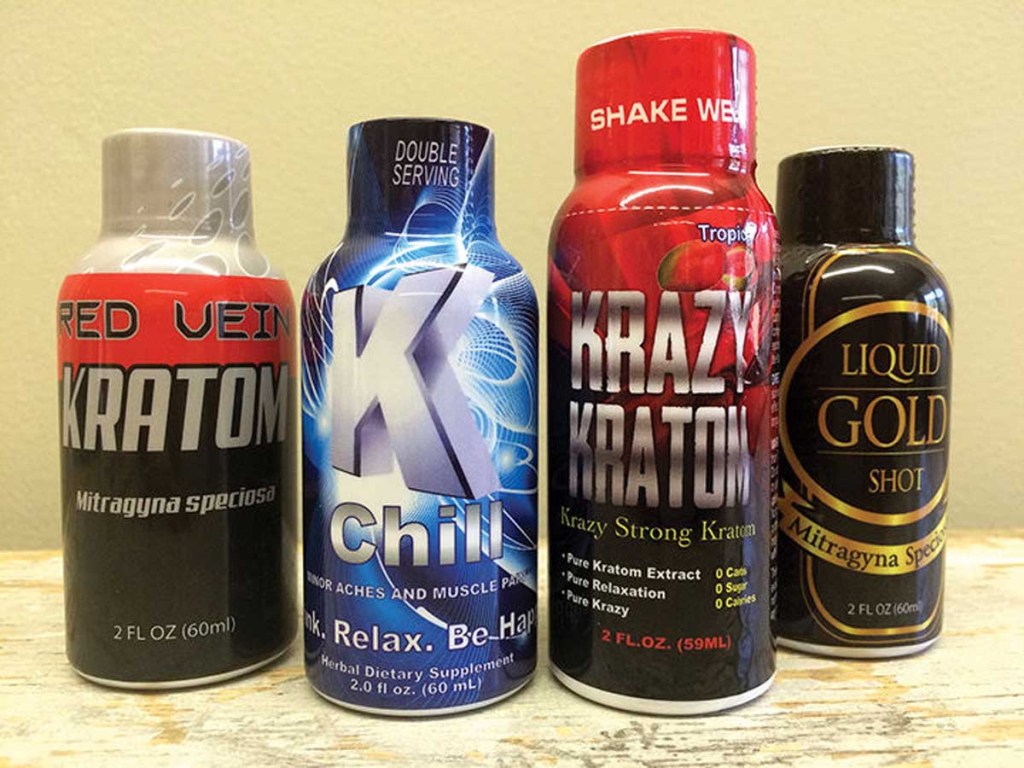Kratom: What is it, and why did Alabama ban it?
Published 9:00 am Wednesday, May 4, 2016

- Kratom, an Asian plant found commonly in supplements sold in area convenient stores, faced a bill this week in the State Legislature that would make it illegal to sell or own in Alabama.
Earlier this year, a St. Clair County mother walked into her teenage child’s room to empty the trash. What she found gave her pause. Inside were 24 plastic 2-ounce bottles of Vivazen, and at that point it all made sense.
“We had been noticing a change in personality,” she said. “Looking back, now we know why.”
Trending
In the past year, products like Vivazen, Liquid Gold and K Chill have exploded in popularity. These, and numerous others, contain a plant from Asia known in the U.S. as kratom – scientifically it’s called Mitragyna speciosa. The plant has been used since the 1800s in native cultures as a stimulant in small doses and a depressant in higher quantities.
In America, it’s on a Federal Drug Administration (FDA) watch list and it’s banned in four states. It’s also available at the convenient store down the street from your home.
Across St. Clair County – Alabama, really – kratom products have emerged as top-selling items. They’re similar in size and shape to 5-Hour Energy supplements and often found either behind the counter or in glass cases. The products also come in pill or powder form.
And here’s what the FDA said about it in the alert it issued in January:
“Scientific literature disclosed serious concerns regarding the toxicity of kratom in multiple organ systems. Consumption of kratom can lead to a number of health impacts, including respiratory depression, nervousness, agitation, aggression, sleeplessness, hallucinations, delusions, tremors, loss of libido, constipation, skin hyperpigmentation, nausea, vomiting, and severe withdrawal signs and symptoms.”
For the local family, who were granted anonymity for this piece, that last part of that FDA warning readily connects. Kratom isn’t a narcotic – it’s a plant. But the symptoms their child experienced in an attempt to stop taking it mimicked those of illegal drugs.
“There were nightmares and chills,” the father said. “No appetitive and no personality. What else do you need to show that this stuff is addictive?”
But on the Internet, the stories are much different. In fact, the amount of praise that’s been given to kratom for its ability to mitigate pain and treat opiate addiction far outweighs claims of negative experiences. Proponents report they have been able to break addictions to strong narcotics including OxyContin and heroin by using kratom.
Those who want it regulated or banned, though, say that’s a primary reason to take it off the shelves.
“I’ve received hundreds of emails from people who use it,” said Barry Matson, Deputy Director of the Alabama District Attorneys Association (ADAA). “A common theme is that this is replacing heroin or being taken in lieu of Oxy, and I do not dispute that it helps and makes them feel better.
“The problem is those are both extremely strong drugs, and people are dying from addictions to them. Something remarkably similar shouldn’t be sold in a gas station.”
Right now, Alabama is seeing marked increase in drug overdose deaths, and it’s directly related to prescription pain killers – opiates and opioids. The Centers for Disease Control reported this year that the state saw a 20 percent rise in overdose deaths – from 598 to 723 – from 2013 to 2014. Opioids, the CDC reported, are the main driver of overdose deaths in the nation and were involved in 28,647 deaths in 2014.
Any similarities in the effects of kratom to opioids have not been proven scientifically, but anecdotes often compare the two. This, as well as the product’s availability to children, are two of the reasons St. Clair County State Rep. Mack Butler introduced a bill this session to make the active enzymes in kratom – Mitragynine and Hydro Mitragynine – scheduled narcotics under Alabama law.
“This is a real leaf,” Butler said. “But it’s also a multibillion dollar industry. I’ve received calls from Kentucky to California in support of this product, and I’ve also heard it’s having a horrible impact on people.”
Butler’s bill didn’t make it to the floor for a vote, but on the final day of the session, May 4, a sister bill in the Alabama Senate sponsored by Sen. Arthur Orr was on the schedule. There to show support for its passing, Matson said, were representatives of the State Health Department, numerous drug courts, rehabilitation facilities and law enforcement agencies.
It passed, and on May 4 it was sent to Gov. Robert Bentley to be signed into law.
“In the last eight or nine months, kratom has spread like wildfire across the state,” Matson said. “What we’re seeing here today are people who have been negatively affected by it.”
Back in St. Clair County, for the family that broke its addiction, these parents simply wanted to push the importance of being aware kratom exists. Children probably know more about it than their parents they said, so it’s important to be educated.
“We have a child with a good strong character, and this still got a hold of [them],” the father said. “That $6 bottle can really mess up a life. It can mess up a whole family.”
Editor’s note: A request for comment from the makers of Vivazen was not returned by deadline.


